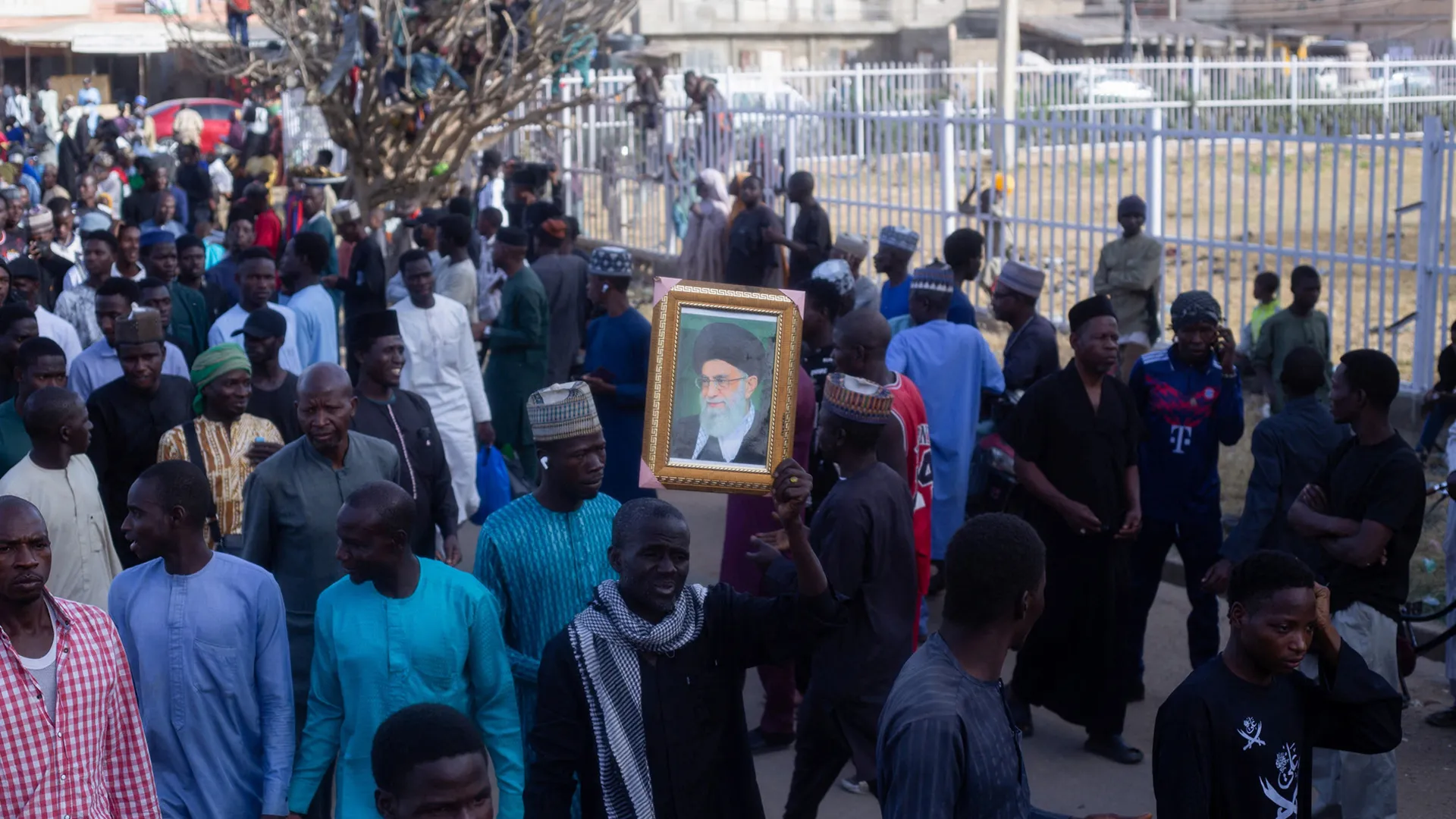Nigerians mourn killing of Iran’s Ayatollah Ali Khamenei | Israel-Iran conflict
Members of Nigeria’s Shia Muslim community are mourning Iran’s Supreme Leader Ayatollah Ali Khamenei who was killed by a US-Israeli attack in Tehran. Demonstrators carried his portrait and waved Iranian flags while they dragged American and Israeli flags along the ground.
Published On 2 Mar 2026
